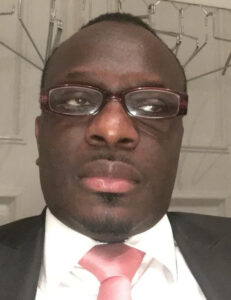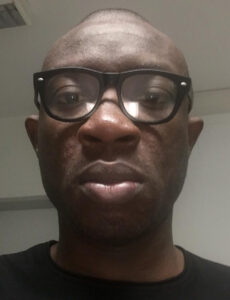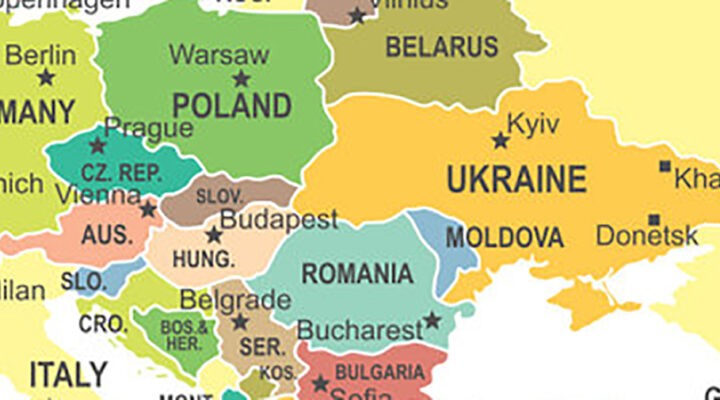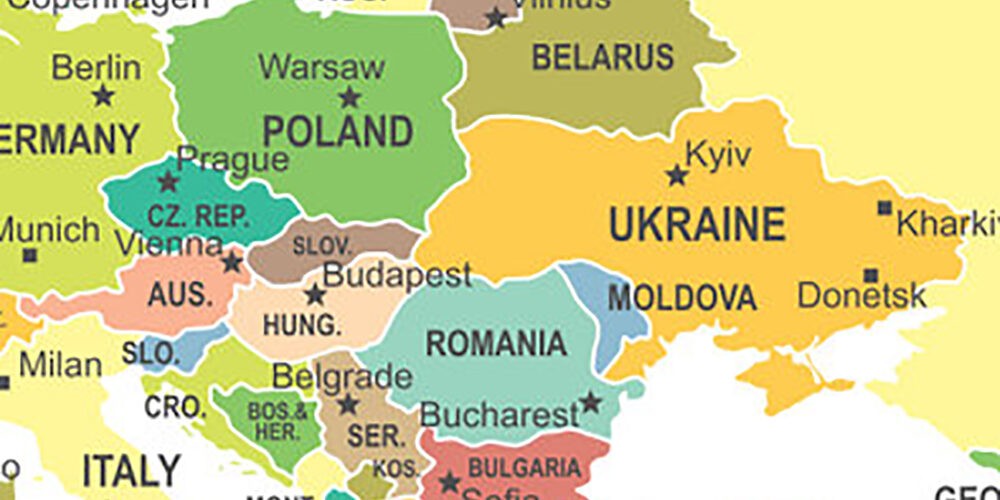Three months after Russian soldiers invaded and unleashed war in Ukraine, some displaced African students determined to continue with their educations are finding it difficult to gain residence permits in European countries like Germany.
This is happening against the backdrop of many European countries — particularly those closest to Ukraine geographically — demonstrating unprecedented hospitality in welcoming millions of refugees.
Before the war, an estimated 76,000 foreign students were studying in Ukraine, and one-fourth of those were from Africa. They had moved to Ukraine to obtain educations not as easily available in their home countries, and then those students got caught up in the diaspora caused by the Russian invasion.
Unlike Ukrainian students who have secured residence permits to continue with their educations in Germany, their African counterparts are still battling for such acceptance. Among the Africans seeking to be accepted by German universities and granted residency permits are Egyptians, Algerians, Cameroonians, Nigerians, Ghanaians, Liberians and Gambians.
At the moment, following spirited efforts by individuals and NGOs negotiating on their behalf, about 30 African students have been admitted by a university in the German state of Hessen. But without securing residence permits from German authorities, the admission may amount to nothing. And even the university admission did not come easily.

Eddy Duru
This was confirmed by Eddy Duru, a Nigerian-born German councilor and founder of Rarduja International, an NGO focused on migration and humanitarian issues. Along with some other partners, he has been working to assist the students in their quest to resettle in Germany: “It’s not been an easy journey,” he said. “We just have to put it the way it is. It’s been a tough journey all this while, trying to incorporate them into our state here.”
As someone aware of the danger and suffering people caught unawares by the war in Ukraine were faced with, Duru said he and a partner NGO mobilized to send a bus to evacuate Africans at the Polish-Ukrainian border. While they were able to assist those they could, including some Ukrainians, many other Africans, most of whom were students, found their way to Germany on their own. And some of them ended up in Hessen.
Upon arrival, an evangelical church offered them a hall for use, after which they engaged with a university in Hessen about absorbing the students. The church “took them in, gave them a hall for that day. Toward evening, after the ceremony, they were moved to the University of Kassel where they were profiled and provided with mobility, network, telephone cards. The university also did their best to get them fed,” Duru explained.
“I have a few persons also in my own house. We were now managing them as a group. The number was outweighing the capacity of the university so they announced that more people shouldn’t be included.”
The initial group of about 60 thus got split up to different places, leaving 22 students to care for and 10 in a nearby community. These 30 remaining students all have gained admission to the local university now, he said.
But the next hurdle for the students and their advocates is to convince German authorities to grant the students three-year residence permits — something already granted Ukrainian students.
An April 22 report by the African Courier states that “Hamburg, one of Germany’s 16 federal states, now issues a six-month provisional residency right to non-Ukrainian students from Ukraine.” The publication quotes Frank Reschreite, a spokesperson for Hamburg, as saying in an interview with Hamburg Journal, that “students must be able to prove that they were students in Ukraine when the war broke out.”
According to the United Nations Refugee Agency, Germany’s Council of the European Union agreed March 4 that temporary protection should be granted to two groups of students displaced from Ukraine due to the armed conflict: Ukrainian nationals who resided in Ukraine before Feb. 24, and “stateless persons and nationals of third countries other than Ukraine, who benefited from international protection or equivalent national protection in Ukraine” before Feb. 24.”
From a student perspective, a six-month residency offers little security for them because they clearly will not be able to return to their studies in Ukraine anytime soon.
Some have suggested the students should seek asylum as refugees in Germany, but Duru doesn’t believe that would be in the students’ best interest.
Some have suggested the students should seek asylum as refugees in Germany, but Duru doesn’t believe that would be in the students’ best interest. “We wouldn’t want the African students to go through the rigors of asylum. … We want to see that they are directly absorbed, and that they continue their studies. They were students. Ukrainians did not take asylum. They were given straight three-year visas to stay, and every other (right as well). The Africans were studying there. They were only destabilized by the war. It was a state of war, which affected everyone, so we shouldn’t now say that because these ones are from the third nation, they have to go.”

Nwabude Chidubem Emmanuel
One of the students, Nwabude Chidubem Emmanuel, told BNG from Kassel of his desire to continue his studies in Germany.
Narrating how he arrived in Germany from Ukraine, Nwabude said he was a pharmacy student at Bogomolet National Medical University in Kyiv. He enrolled at the university after completing his first degree in Nigeria.
“Before the attack by the Russians, we were all hearing strange news that they were planning an attack and have been surrounding the borders of Ukraine for quite some time,” Nwabude recalled. “A U.S. report said that there will be a possible attack, which caused panic among all the students from different countries. Some weeks before the attack, some embassies told their citizens to start leaving Ukraine immediately (or) make plans to evacuate on time. To some of us it was a joke because our professors and doctors were telling us then not to worry,” that the Ukrainian and Russian governments “will reach a compromise and that they witnessed the previous attack on Donesk and Lugansk and their government would not allow such a thing to happen again.”
Of course, it didn’t happen that way. Nwabude said when the attacks started, “we could hear bomb blasts in Kyiv, a few kilometers from residencies and hostels. … People started to leave the country fast, and the train station got filled. (There was) no flight because the international airport had been bombed … so getting a train to Lviv, a neighboring city and then to Poland, was very difficult.”
Amid the chaos, Nwabude said he was able to escape Kyiv with a Nigerian whose sister was scheduled to get married.
“I was lucky to have a family friend who planned to have her wedding on April 2. She was making plans for her brother and sister to come back too. At the (time) of the attack, she was already in Nigeria with her fiancé, so the brother informed me that we will try and leave together immediately,” he said. “It was so sudden that I had to leave everything behind in the hostel, clothes, books, shoes, foods, bigger bags which contain some documents and even some cash and some other stuffs. I took only a small bag packed with two shirts and some accessories.”
The journey to safety wasn’t easy. “It was a small car, and we were told to travel light, that the war may only last for a few days or weeks. We stayed on the road for six days trying to cross the border because there were so many cars and people too.”
He added that when they crossed the border, he had a change of heart while his co-travelers also changed plans. They thus all went their different ways.
“I see him as my guardian angel, the one God used to make a way where there seemed to be no way.”
In Slovakia, he met someone else whose uncle lived in Germany and was willing to take him along, but he ended up losing his phone on the train and while looking to make a report on it, the person left him and proceeded to Germany. Stranded, Nwabude said someone gave him Duru’s phone number. And upon being contacted, Duru came to the train station to pick him up and since then has been helping with his upkeep.
“I see him as my guardian angel, the one God used to make a way where there seemed to be no way,” he said.
Now he needs God’s help to continue his studies, he said. “At the moment I cannot continue with pharmacy, as their pharmacy program is in German. They are offering me nanoscience at master’s level and with that I can apply for a study visa, but the criteria … include the compulsory 12,500 Euros … which I do not know how to raise, but I keep believing God to make a way as always.”
Some wonder why the African students don’t just return to their home countries to complete their educations. The answer often is that there is no equivalent education available.
Kensede Obong Okosun, an African Ph.D. student based in Germany for many years, says the blame should be laid at the doorstep of bad leadership in Africa.
“Today, home has become bitter and distasteful,” she said. “One would rather remain abroad than return home. I hear that many Nigerian students chose to remain in Ukraine amidst the chaos. For them, dodging bullets is preferable to the pandemic of hunger and impoverishment currently bedeviling the Nigerian populace while inhumane politicians, who have lost connection with their inborn human essence of love, compassion and kindness, flaunt the collective wealth of the people which they have illegally amassed for themselves.”
Anthony Akaeze is a Nigerian-born freelance journalist who currently lives in Houston. He covers Africa for BNG.
Related articles:
Black and Asian refugees fleeing Ukraine face additional barriers, discrimination
Nowhere near the war zone, Africans feel the heat of the Russia-Ukraine war in their pocketbooks


